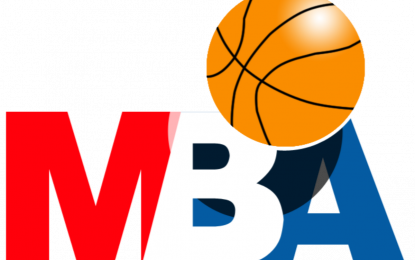
MANILA -- On this month 20 years ago, a league that shook up the Philippine basketball scene was born.
From the heart of Lingayen came the Metropolitan Basketball Association or simply known as the MBA and MetroBall.
While the league introduced interesting modifications to some of professional basketball rules, it was the main purpose of the league that stood out: home-and-away basketball.
Twelve teams from 11 provinces answered the call to become the charter franchises of the MBA, with each team taking turns in hosting the games.
Four expansion clubs were formed as the league rolled along.
‘The Passion of the Nation’
On March 7, 1998, many fans converged at the Narciso Ramos Sports Complex in Pangasinan's capital to formally launch the MBA.
No less than former President Fidel Ramos, a native of Pangasinan (Pangasinan's 1998 season moniker Presidents was an ode to Ramos), graced the event and even declared the start of the season.
Interestingly, the inauguration of the MBA came a day before PBA legend Robert Jaworski's 52nd birthday, and in what seemed like an answer to the opening of the MBA, the commissioner at that time is current PSC commissioner and Jaworski's bosom buddy Mon Fernandez.
Vintage Sports, the broadcaster of the PBA during those days, put up a special birthday bash for Jaworski on the same night at the Smart Araneta Coliseum in Quezon City.
Vintage had to brave two road blocks -- mother station IBC's deal with ABS-CBN, the MBA's chief TV partner, to have a simulcast of the MBA opening, and a conflict with COMELEC considering Jaworski’s senatorial bid that time -- for the event to push through.
The MBA's inaugural season ran until right on Halloween, when Pampanga completed the spooking of Negros to capture what would be its one and only MBA title.
It was also Aric Del Rosario's one and only professional basketball pennant as head coach and fifth in the last six years if you take into consideration UST's fabled four-peat.
Expansions
The following year saw Iloilo's club "beautifying" its moniker into "Magavoltz" and Pangasinan making a complete name change from Presidents to Waves, but it was the arrival of three expansion teams that highlighted the MBA's sophomore season.
One of them, San Juan, gave at least most of the original 12 franchises, including the two Metro Manila clubs, headaches as the team known as the Knights had a deep run that season that spilled through the Northern Conference Semifinals, pushing Pasig to the limit in their best-of-five affair.
In the end, however, it was Manila, which built a 22-game winning streak during the regular season, which still stands as the longest winning streak in Philippine basketball; and Cebu that figured out in the MBA Finals with the former, known as the Metrostars beating the latter, known as the Gems, in six games to capture the title.
The highlight of series: an epic scoring battle between Metrostar Alex Compton and Gem Dondon Hontiveros in Game 5 of the said series in Cebu City.
San Juan finally reached the Promised Land by the turn of the millennium, edging Negros in six games to win the 2000 MBA title.
The demise
In 2001, however, the once 15-team-strong MBA was down to eight clubs as seven teams either took a leave, left the league for good, or merged with another squad.
Manila forged a merger with Batangas, paving the way for Compton, Romel Adducul, and Peter Martin, the stars of the former Metrostars club, to join the Eddie Laure and Jeffry Sanders-led Blades.
The primary reason was the lack of finances to run the team on a continuous basis.
Also, with Hontiveros and Willie Miller, then the Patriots' superstar, opting to join the PBA, the MBA started to become less anticipated as before.
Batangas' so-called "super team" gave Negros yet another finals heartbreak by winning the 2001 Finals.
In 2002, the entire Laguna Lakers franchise bolted out of the MBA and bought the then struggling Tanduay franchise in the PBA; and the club was renamed the FedEx (later Air21) Express.
Nueva Ecija, San Juan, and SOCSARGEN, which opted to hold their inter-conference games in Taguig and eventually renamed the SOCSARGEN-Taguig Marlins, folded on the said year as well.
Meanwhile, with Pangasinan, Pampanga, and Cagayan De Oro returning from their leaves of absence, plus the formation of expansion squad Olongapo, they failed to thwart the league's death.
On July 26, 2002, just as the MBA began its so-called "National Tournament", they called it quits.
The Slashers, who won the Crossover Tournament that season, was named the de facto national champs.
Legacies made
While the MBA only lasted for five seasons, it did leave some lasting impressions not just to Philippine basketball, but to the global stage as well.
Miller and Hontiveros became two of the PBA's brightest stars in the 2000's, with them getting national team stints.
Other MBA stars like PJ Simon, Rafi Reavis, and Reynel Hugnatan, are still making their presence felt despite their pro careers already at the twilight zone.
Lastly, one of its house rules, the eight-second backcourt rule, was adopted by FIBA in 2000 and by the NBA and the PBA a few years later.
In its five seasons of existence, the MBA helped shape the setup of our local hoops scene today. (PNA)
